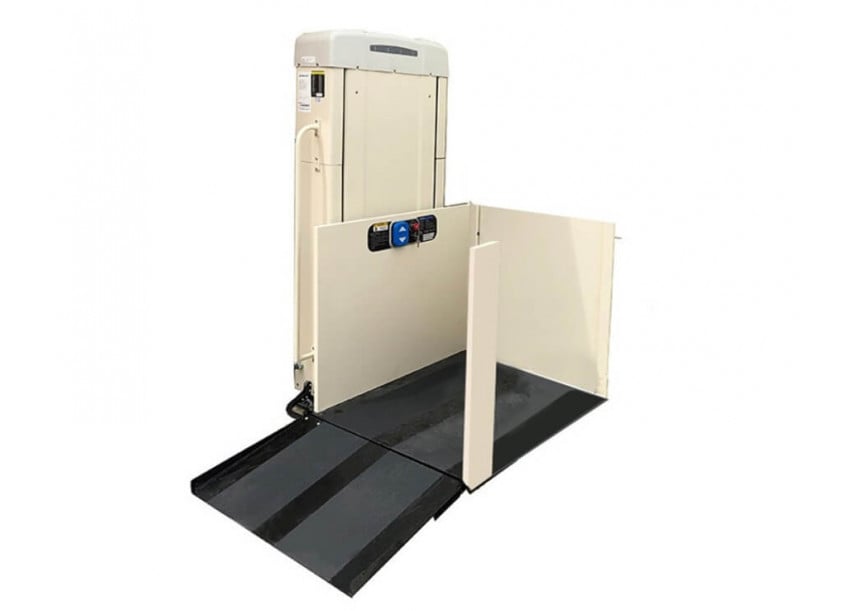Commercial Platform Lifts for ADA Compliance
Freedom Commercial Wheelchair Platform Lifts are ASME 18.1 compliant and provide handicapped accessibility for churches, schools, businesses and public buildings. Commercial wheelchair lifts are economical to buy and easy to install. We offer a selection of vertical platform lifts with maximum lifting heights of 53 inches in vertical lift. Read More...
Browse All Commercial Wheelchair Lifts:
-
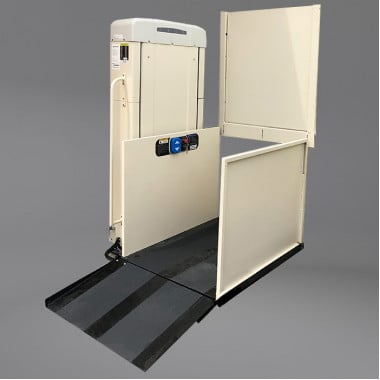
Model: APFVPLC400STRLAL
53" Straight Through Freedom Easy Ride II Commercial Vertical Platform Lifts - Left Tower
US$14,495.00US$9,789.00
Save 32%
-
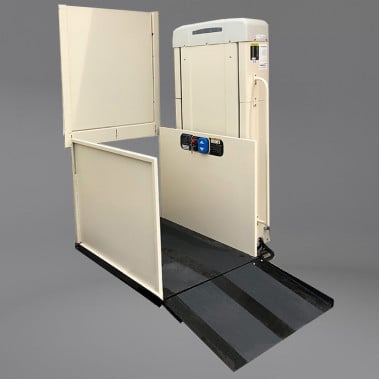
Model: APFVPLC400STRLAR
53" Straight Through Freedom Easy Ride II Commercial Vertical Platform Lifts - Right Tower
US$14,495.00US$9,789.00
Save 32%
-
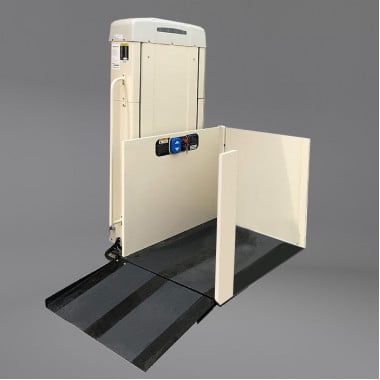
Model: APFVPLC400ADJLAL
53" Adjacent Freedom Easy Ride II Commercial Vertical Platform Lifts - Left Tower
US$24,040.00US$16,730.00
Save 30%
-
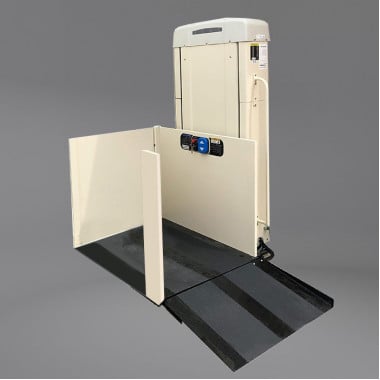
Model: APFVPLC400ADJLAR
53" Adjacent Freedom Easy Ride II Commercial Vertical Platform Lifts - Right Tower
US$24,040.00US$16,730.00
Save 30%

Make Any Building Accessible With a Freedom Lift System
If you need accessibility but cannot install an elevator, wheelchair lifts are a better solution for commercial buildings. Our Freedom commercial wheelchair platform lift is easy to install and simple to operate. Wheelchair platform lifts make almost any building easy to access for those in wheelchairs and scooters. Our commercial wheelchair lifts are ASME 18.1 compliant and includes a 42” solid handrail for added safety. Exceptionally engineered for durability and easy maintenance, our platform lifts can be used inside or outside to meet your requirements.
All Freedom wheelchair lifts are weatherized to withstand a variety of temperatures and weather conditions. As an alternative to installing an expensive elevator, wheelchair lift installations are faster and more affordable. We are available to answer any questions to help you choose the optimal wheelchair lift to fit your design for commercial use.
PLEASE NOTE: It is the CUSTOMERS responsibility to assure compliance with relevant building code and regulatory requirements Read our Frequently Asked Questions about code commercial lifts.
Frequently Asked Questions:
-
In commercial settings, a commercial wheelchair lift can travel up to 60” unenclosed. Freedom Commercial Lifts are available with maximum lifting heights of 53”
For travel heights from 5’ to 14’, lifts need to be enclosed in a shaft, as per code.
-
Freedom Commercial Wheelchair Lifts have a weight capacity of 750lbs.
-
Wheelchair lifts are designed to accommodate a single rider with a wheelchair or scooter, and are generally rated for 750lb maximum weight capacity. Some Commercial vertical platform lifts can travel up to 14’, but most are designed to travel less than 60”, unenclosed. Higher lifts need to be installed in a shaft, similar to an elevator. Wheelchair lifts have constant pressure controls.
Elevators are designed for multiple riders, and usually have much higher weight capacity and can travel any height. Elevators have fully automatic controls and doors. Elevators will cost significantly more than wheelchair lifts.
Both will likely need to be installed by a Certified Elevator Technician or Mechanic for commercial installations. Check with your local permit office to verify installation requirements.
-
When deciding how to make your business accessible you will be able to choose a lift or a wheelchair ramp. The configuration of your entrance may determine which choice to make, but a platform lift has many benefits. The footprint is significantly smaller for a lift usually no more than 5 feet by 5 feet. A ramp needs to be at least 1 foot long for every 1” of rise, so even to go up 4 steps your ramp would need to be 28” feet long. That is a lot of space and a lot of material, especially considering the increased cost of lumber right now.
Also, a lift is often better for more users, as some wheelchair users can’t roll themselves up a ramp easily, or safely roll down.
-
A portable wheelchair lift is a good solution for temporary needs and have often been used in schools and churches to provide access to a stage for events. Local jurisdictions will likely have a time limit that a temporary lift can remain in one location, so there must be a place for the portable lift to be stored.
Most public and commercial buildings would require a permanently installed wheelchair lift instead. As always, please check with local permit office to verify code requirements.
-
Commercial wheelchair lifts likely need to be installed by a Certified Elevator Technician or Mechanic for commercial installations. Some General Contractors may be licensed to do lift installations. Check with your local permit office to verify installation requirements.
-
Commercial Wheelchair Lifts are configured to include safety options and requirements to meet ASME codes. You can choose a straight through platform or an adjacent platform for a 90 degree turn, depending on your layout needs. You can also add a battery backup system, which is also required in some jurisdictions.

 My Account
My Account  1-877-947-7769
1-877-947-7769 